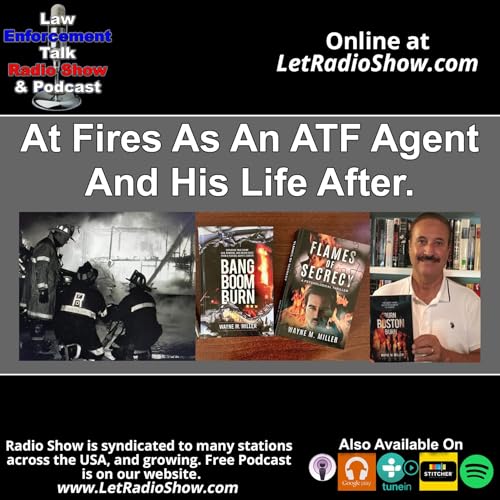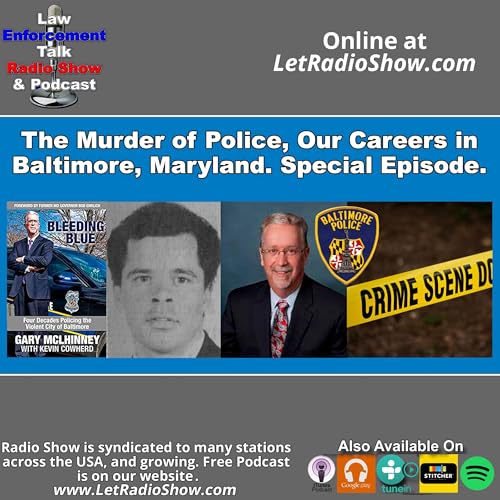At Fires As An ATF Agent And His Life After. From Flames to Pages: The Enduring Legacy of Retired ATF Agent Wayne Miller. Wayne Miller, a retired ATF agent and seasoned fire investigator, has dedicated his life to unraveling the mysteries behind some of the most devastating fires in history. His extensive career, spanning 25 years with the Federal Bureau of Alcohol, Tobacco and Firearms in Boston, saw him at the forefront of numerous high-profile illegal firearms, bombing, and arson cases. The Law Enforcement Talk Radio Show and Podcast social media like their Facebook , Instagram , LinkedIn , Medium and other social media platforms. Miller's commitment to justice and his profound understanding of fire science have left an indelible mark on the field. The Podcast is available for free on the Law Enforcement Talk Radio Show and Podcast website, also on Apple Podcasts, Spotify, YouTube and most major podcast platforms. One of the most harrowing incidents Miller investigated was the Dupont Plaza Hotel fire in Puerto Rico on New Year's Eve, 1986. Supporting articles about this and much more from Law Enforcement Talk Radio Show and Podcast in platforms like Medium , Blogspot and Linkedin . This tragic event, which claimed the lives of 96 to 98 people and injured 140 others, was intentionally set by disgruntled employees amidst a labor dispute. Miller was on the scene for eight grueling days, meticulously piecing together the events that led to the catastrophe. The fire, which started with chafing fuel in a storage room, quickly engulfed the ballroom and casino, trapping many guests. At Fires As An ATF Agent And His Life After The investigation revealed critical security lapses, including locked emergency exits, which contributed to the high death toll. "The sheer scale of the devastation and the preventable nature of the loss of life at the Dupont Plaza Hotel were truly heartbreaking," Miller has reflected. Years later, Miller's expertise was again called upon for another profound tragedy: the Worcester Fire in 1999, where six brave firefighters lost their lives in an abandoned warehouse blaze. Available for free on the Law Enforcement Talk Radio Show and Podcast website, also on Apple Podcasts, Spotify, Youtube and most major Podcast networks. This incident deeply affected Miller, highlighting the immense risks faced by first responders. His investigations into such events have not only sought to determine causes but also to prevent future occurrences. After his distinguished career with the ATF, Miller transitioned into a new chapter, continuing his work as a criminal investigator and certified fire investigator. At Fires As An ATF Agent And His Life After He has examined over 2,300 fire and explosion scenes across 43 states and provided expert testimony in numerous federal and state courts. His dedication to sharing knowledge extends to academia, where he served as an Adjunct Professor, and as a speaker at over 80 events across the United States and Canada. Look for The Law Enforcement Talk Radio Show and Podcast on social media like their Facebook , Instagram , LinkedIn , Medium and other social media platforms. Beyond his investigative work, Wayne Miller has become a prolific author, sharing his experiences and insights through compelling narratives. His literary journey includes four books: Burn Boston Burn, Bang Boom Burn, Flames of Secrecy, and The Mystery of the Missing Moon. His first book, Burn Boston Burn: The Largest Arson Case in the History of the Country, was a 2022 Global Book Gold Award winner and is currently in development for a motion picture. His second, Bang Boom Burn, Explosive True Crime Gun Bombing, and Arson Cases from a Federal Agent’s Career, also garnered a Global Book Silver Award. Miller often engages with audiences, presenting "the wild stories from his career that form the basis for his two true crime books." Available for free on their website and streaming on Apple Podcasts, Spotify, Youtube and other podcast platforms. His first novel, Flames of Secrecy, A Psychological Thriller, published in 2024, is a 2025 Global Book Gold Award winner. At Fires As An ATF Agent And His Life After Wayne Miller's journey from fighting fires as an ATF agent to chronicling his experiences in books and sharing them through various platforms like the Law Enforcement Talk Radio Show and Podcast website, their Facebook, Instagram, News outlets, Apple Podcasts, Spotify, YouTube and most major Podcast platforms, demonstrates a remarkable commitment to public safety and storytelling. His work continues to educate and captivate audiences, reminding us of the critical role of fire investigation and the human stories behind the headlines. It is discussed across News platforms and shared on Facebook, Instagram, LinkedIn, Apple, and Spotify, where audiences continue to get their content. For more information, visit his website at www.burnbostonburn.com, or connect with him on LinkedIn and ...
Show More
Show Less
 Mar 4 202639 mins
Mar 4 202639 mins Mar 1 202639 mins
Mar 1 202639 mins 40 mins
40 mins Feb 22 202640 mins
Feb 22 202640 mins Feb 18 202640 mins
Feb 18 202640 mins Feb 15 202639 mins
Feb 15 202639 mins Feb 11 202641 mins
Feb 11 202641 mins 40 mins
40 mins
